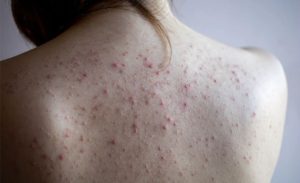In the ever-evolving landscape of beauty and fashion, where radiant, clear skin is the canvas upon which the latest trends come to life, the battle against acne is a common thread that unites us all. Embracing a holistic approach to skincare, our focus shifts to the power of do-it-yourself (DIY) acne spot treatments. In this guide, we delve into the realm of natural remedies, steering clear of the commercial clutter and opting for solutions that harness the potency of ingredients readily available at home.
The Quest for Clearer Skin
Acne, a familiar adversary for many, goes beyond being a mere skin condition; it holds the potential to impact our confidence and self-esteem. Understanding the nuances of acne is the first step towards conquering it, and in this pursuit, we explore the different types of acne and their effects on overall skin health.
As we embark on this journey, keep in mind that our focus lies not in the aisles of beauty stores but in the heart of our homes, where simple yet effective DIY remedies await discovery. Join us as we uncover the secrets behind home remedies, exploring natural treatments that are not only gentle on the skin but also aligned with the principles of a mindful beauty routine.
Understanding Acne

What is Acne?
Acne, the relentless nemesis of clear skin, is a multifaceted skin condition that transcends age and gender boundaries. Characterized by the formation of pimples, cysts, and blemishes, acne often arises from a combination of factors such as excess oil production, clogged pores, bacteria, and inflammation. It’s not merely a cosmetic concern but a reflection of our skin’s health and balance.
Understanding the root causes of acne is crucial in formulating effective DIY spot treatments. Factors like hormonal fluctuations, genetics, and lifestyle choices play pivotal roles. In this section, we’ll dissect the anatomy of acne, shedding light on its various manifestations and the impact it can have on one’s skin condition.
Different Types of Acne
Acne doesn’t conform to a one-size-fits-all definition. Instead, it presents itself in various forms, each requiring a tailored approach to treatment. From the common occurrence of blackheads and whiteheads to more severe conditions like cystic acne, our skin undergoes different challenges.
By gaining insights into the different types of acne, we equip ourselves with the knowledge needed to address specific concerns. Whether you’re dealing with occasional breakouts or persistent cysts, understanding the nature of your acne is the cornerstone of effective DIY spot treatments.
As we proceed, envision acne not as an insurmountable obstacle but as a puzzle waiting to be solved. Through a blend of education and experimentation, we aim to unveil the secrets to clearer skin, navigating the intricacies of acne with confidence and grace.
Home Remedies for Acne
In the realm of skincare, the allure of home remedies lies in their simplicity, accessibility, and the absence of harsh chemicals. As we embark on a journey to discover effective DIY acne spot treatments, we turn our attention to the healing potential of natural ingredients readily available in our homes.
Apple Cider Vinegar (ACV)
Introduction: Apple Cider Vinegar (ACV) emerges as a potent elixir in the fight against acne. Its antibacterial effects make it a standout choice for those seeking a natural solution.
How to Use ACV for Acne:
- Dilution is Key: Mix one part ACV with three parts water to create a gentle yet effective solution.
- Application Technique: Apply the diluted ACV to affected areas using a cotton pad or ball.
- Consistency Matters: Use regularly to experience the citric acid’s transformative effects on your skin.
Zinc Supplement

Importance of Zinc: Zinc, an essential nutrient, takes center stage in our arsenal against acne. Scientific studies underscore its role in promoting skin health and preventing acne flare-ups.
Incorporating Zinc:
- Dietary Sources: Explore foods rich in zinc, such as nuts, seeds, and legumes.
- Supplementation: Consider zinc supplements after consulting with a healthcare professional.
Honey and Cinnamon Mask
Antibacterial Efficacy: The combination of honey and cinnamon creates a powerful antibacterial mask, providing a natural and soothing remedy for acne.
DIY Mask Preparation:
- Ingredients: Mix honey and cinnamon to form a paste.
- Application: Gently apply the mask to the affected areas.
- Leave On: Allow the mask to sit for a specified time before rinsing.
Tea Tree Oil
Introduction to Tea Tree Oil: Tea tree oil, an essential oil renowned for its natural properties, becomes a valuable asset in combating acne.
Application Caution:
- Dilution is Crucial: Mix tea tree oil with a carrier oil to avoid skin irritation.
- Spot Treatment: Apply diluted tea tree oil directly to blemishes for targeted action.
In adopting these DIY remedies, we not only embrace a natural approach but also empower ourselves with the knowledge to take charge of our skincare routine. The journey to clearer skin begins at home, where simplicity meets efficacy, and where natural remedies become our trusted companions in the pursuit of beauty and wellness.
Natural Ingredients for Clearer Skin
Green Tea

Antioxidant Powerhouse: Green tea, celebrated for its antioxidant properties and polyphenols, offers a refreshing twist in our quest for clearer skin. These elements contribute to reducing inflammation and promoting overall skin health.
Incorporating Green Tea:
- Brewed Tea Application: Apply cooled green tea directly to the skin using a cotton pad.
- Green Tea Face Mask: Elevate your skincare routine with a DIY green tea face mask to soothe and revitalize.
Witch Hazel
Natural Antibacterial Ally: Witch hazel, a natural astringent, emerges as a formidable ally in the fight against acne. Its ability to fight bacteria and reduce skin irritation makes it a valuable addition to our skincare repertoire.
Ways to Use Witch Hazel:
- Toner Application: Incorporate witch hazel into your daily routine as a toner.
- DIY Witch Hazel Spray: Create a soothing spray for on-the-go acne management.
Aloe Vera
Salicylic Acid Boost: Aloe vera, long revered for its skin-soothing properties, contains salicylic acid, known for its acne-fighting capabilities. The gel from the aloe vera plant becomes a natural remedy to combat skin inflammation.
Aloe Vera Gel Application:
- Direct Application: Apply aloe vera gel directly to acne-prone areas.
- DIY Aloe Vera Mask: Combine aloe vera with other natural ingredients for a customized mask.
Fish Oil
Omega-3 Fatty Acids for Skin Wellness: Fish oil, rich in omega-3 fatty acids, emerges as a dietary powerhouse with anti-inflammatory effects. Scientific studies highlight its potential in addressing inflammatory factors related to acne.
Incorporating Fish Oil:
- Dietary Sources: Include fatty fish in your diet or consider fish oil supplements.
- Balancing Omega-3 Intake: Strike a balance between omega-3 and omega-6 fatty acids for optimal skin health.
In this exploration of natural ingredients, we uncover the diverse offerings of green tea, witch hazel, aloe vera, and fish oil. These elements not only contribute to clearer skin but also bring a touch of nature’s wisdom to our daily skincare rituals. By embracing the bounty of the earth, we pave the way for a radiant and balanced complexion.
Additional Strategies for Clear Skin
Exfoliation
Importance of Exfoliation: Exfoliation plays a pivotal role in maintaining clear and radiant skin by removing dead skin cells that can contribute to acne. In this section, we explore various exfoliation methods to enhance your skincare routine.
Different Exfoliation Methods:
- Microdermabrasion: Consider microdermabrasion as a more intensive exfoliation option.
- Facial Scrubs: Incorporate gentle facial scrubs with natural exfoliants into your routine.
- Chemical Exfoliants: Explore the use of chemical exfoliants like alpha and beta hydroxy acids.
Low Glycemic Diet
Understanding Glycemic Index: Dietary choices can significantly impact skin health, and understanding the glycemic index is crucial in managing acne. This section delves into the correlation between diet, insulin, and skin condition.
Implementing a Low Glycemic Diet:
- Choosing Complex Carbohydrates: Opt for whole grains, fruits, and vegetables.
- Balancing Macronutrients: Maintain a balance of carbohydrates, proteins, and healthy fats.
- Hydration: Stay well-hydrated to support overall skin health.
FAQ
Why choose DIY acne spot treatments over commercial products?
DIY acne spot treatments offer a natural and chemical-free alternative, utilizing ingredients readily available at home. This approach often provides gentler solutions without the potential side effects associated with some commercial products.
How often should I apply these DIY treatments for optimal results?
Consistency is key. Depending on the specific remedy, aim for regular application, whether it’s daily or a few times a week. Results may vary, so patience and adherence to a routine are crucial for seeing improvements.
Are there any precautions when using essential oils like tea tree oil?
Yes, essential oils can be potent, and it’s essential to dilute them before application. Perform a patch test to check for any adverse reactions, and if irritation occurs, discontinue use. Consult with a dermatologist if you have sensitive skin or existing skin conditions.
Can I combine multiple DIY treatments?
While some combinations can be effective, it’s advisable to introduce one treatment at a time to monitor its impact on your skin. Combining treatments without understanding their interactions may lead to unexpected results. Listen to your skin’s response and adjust accordingly.
How long does it take to see results from these DIY acne spot treatments?
Results vary from person to person. While some may experience improvements within a few weeks, others may require more time. Consistent application and a holistic skincare approach contribute to long-term success.
Are there any dietary changes I should consider for acne prevention?
Yes, adopting a low glycemic diet, rich in whole grains, fruits, and vegetables, can positively impact skin health. Balancing macronutrients and staying hydrated also play a role in supporting clearer skin.
Can these DIY treatments be used on all skin types?
Most DIY treatments are generally suitable for various skin types, but it’s essential to be mindful of individual sensitivities. Patch tests are recommended, and if you have specific skin concerns or conditions, consult with a dermatologist before incorporating new treatments.
Are there any age restrictions for using these DIY remedies?
DIY acne spot treatments are generally safe for adults. However, for teenagers or individuals with specific skin concerns, it’s advisable to consult with a healthcare professional or dermatologist to ensure the chosen remedies align with their unique needs.
Can these DIY treatments replace professional skincare treatments?
DIY treatments can be effective for mild to moderate acne, but for severe cases or persistent issues, seeking advice from a dermatologist is recommended. Professional guidance ensures a tailored approach to your specific skin condition.
How can I incorporate these DIY treatments into my existing skincare routine?
Introduce DIY treatments after cleansing and before moisturizing. Start with one treatment and gradually incorporate others based on your skin’s response. Consistency and moderation are key for a well-rounded skincare routine.
Conclusion
In the pursuit of clear skin, exfoliation emerges as a key practice, complementing our arsenal of DIY acne spot treatments. By incorporating these methods into our skincare routine, we not only address existing concerns but also prevent future breakouts, paving the way for a smoother complexion.
Understanding the impact of diet on skin health, particularly in relation to acne, is an essential aspect of our skincare journey. Adopting a low glycemic diet becomes a proactive measure, aligning our nutrition with our quest for clearer and healthier skin.
As we conclude our exploration of DIY acne spot treatments and additional strategies, remember that achieving radiant skin is a journey, not a destination. Consistency, patience, and a holistic approach to skincare are the cornerstones of our endeavor. Embrace the wisdom of natural remedies, nourish your skin from the inside out, and revel in the beauty of a complexion that radiates health and confidence.
Read more about skincare in the following articles
A 5-Step Guide to a Shine-Free Complexion
How to Keep Your Skin Hydrated and Glowing


